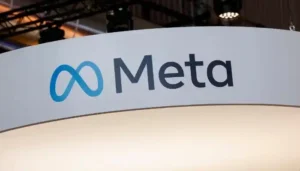Meta has initiated another round of layoffs, this time targeting its Risk division, as part of a broader strategy to automate compliance and privacy functions.
The move follows the company’s recent decision to cut approximately 600 roles from its AI team.
According to internal communications and multiple media reports, more than 100 employees in the Risk division have been let go, with the company citing a transition from manual processes to automated systems as the primary reason.
Michel Protti, Meta’s Chief Privacy Officer, informed employees in a memo that the company is shifting from bespoke, manual reviews to standardized, automated procedures.
This change, he said, has led to more consistent and reliable compliance outcomes across Meta’s platforms.
The affected roles primarily involved reviewing projects for privacy and integrity risks, a function now increasingly handled by AI systems.
Automation Drives Organizational Restructuring at Meta
The layoffs reflect Meta’s ongoing investment in technical controls and global compliance infrastructure.
By automating repeatable compliance checks, the company aims to streamline operations and reduce reliance on human oversight for routine decisions.
Michel noted that Meta has made significant progress in building global technical controls, which now allow for more efficient and scalable risk assessments.
“As a result, we don’t need as many roles in some areas as we once did,” Michel stated in the memo, acknowledging the impact of automation on staffing needs.
While the exact number of roles eliminated was not disclosed in the memo, sources familiar with the matter confirmed that over 100 employees were affected.
Impact on Product Risk and Shared Services Teams
The reorganization has affected teams within Product Risk Program Management and Shared Services, both of which played key roles in Meta’s internal compliance and risk review processes.
These teams were responsible for evaluating new product features and updates to ensure they met regulatory and ethical standards.
Technology will now review low-risk product updates, replacing the need for human teams.
This shift is part of Meta’s broader effort to integrate AI into its operational backbone, reducing manual intervention and increasing efficiency.
Employee Reactions and Broader Implications
The layoffs have sparked concern among employees, with some expressing frustration over the pace and scale of automation.
On platforms like Blind, anonymous workers have criticized the company’s approach, describing it as “hiring to fire.”
The sentiment reflects growing unease about job security in tech companies increasingly reliant on AI-driven processes.
Industry analysts suggest that Meta’s move reflects a broader trend in the technology sector.
Companies are increasingly re-evaluating traditional roles in favor of automation and machine learning.
This shift may lead to operational gains. However, it also raises questions about the future of human oversight in areas like privacy, ethics, and regulatory compliance.
Note: We are also on WhatsApp, LinkedIn, and YouTube to get the latest news updates. Subscribe to our Channels. WhatsApp– Click Here, YouTube – Click Here, and LinkedIn– Click Here.



